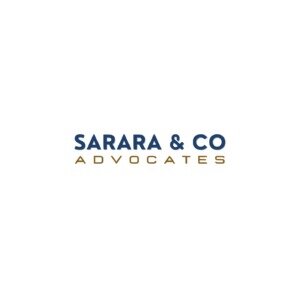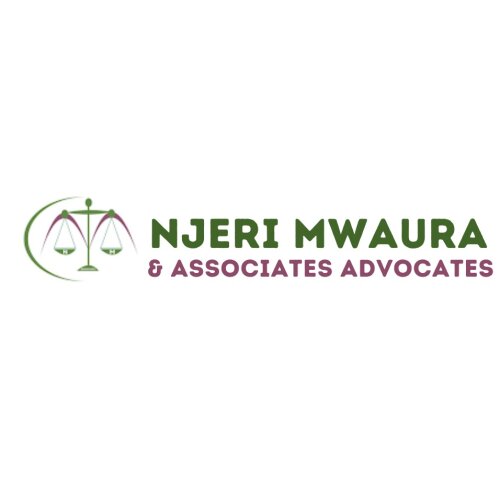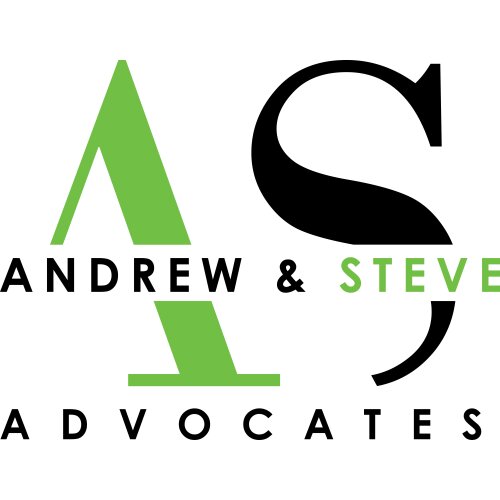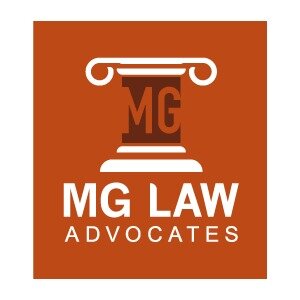Best ADR Mediation & Arbitration Lawyers in Kenya
Share your needs with us, get contacted by law firms.
Free. Takes 2 min.
Or refine your search by selecting a city:
List of the best lawyers in Kenya
Kenya ADR Mediation & Arbitration Legal Questions answered by Lawyers
Browse our 1 legal question about ADR Mediation & Arbitration in Kenya and read the lawyer answers, or ask your own questions for free.
- Court vs. arbitration/meditation, what's the most beneficial time saving option?
- What is the best course of action for a case against a person abusing their power to cover up abuse crimes ranging from sexual, emotional, physical, financial and mental forms of abuse as well as gang stalking, harassment and intimidation? Is it court or an arbitration/meditation situation?
-
Lawyer answer by hbabknka
This is best pursued through a criminal case. Report him to the police and allow them to investigate, a lawyer can help you monitor how the prosecution will handle the case. Additionally, you can sue him in a civil court...
Read full answer
About ADR Mediation & Arbitration Law in Kenya
Alternative Dispute Resolution (ADR) in Kenya encompasses various methods like mediation and arbitration to resolve disputes outside of the courtroom. These methods offer a more private, cost-effective, and quicker resolution compared to traditional litigation. The Kenyan legal framework supports ADR through legislation such as the Arbitration Act, 1995 and the Mediation Accreditation Committee Guidelines. ADR processes are often preferred for commercial disputes and have gained traction as a viable option to reduce the burden on the courts and promote amicable settlements.
Why You May Need a Lawyer
Seeking legal advice in ADR mediation and arbitration can be crucial in a number of situations, such as:
- When drafting arbitration agreements to ensure enforceability and clarity.
- During mediation or arbitration to represent your interests and negotiate effectively.
- If arbitration awards need enforcement or are being contested.
- When advice is needed on the selection of mediators or arbitrators.
- In complex legal disputes involving multiple jurisdictions.
- To ensure compliance with local laws and compatibility with international ADR practices.
Local Laws Overview
ADR in Kenya is primarily governed by the Arbitration Act, 1995, which aligns with the UNCITRAL Model Law, ensuring that arbitral processes are consistent with international standards. Mediation, while less legislatively entrenched, is supported by the Judiciary’s initiatives, such as the Court Annexed Mediation Program. This program integrates mediation into the legal process, offering a viable option before a case proceeds to trial. Additionally, the Nairobi Centre for International Arbitration (NCIA) was established to promote efficient dispute resolution, providing institutional support for ADR practices.
Frequently Asked Questions
What is the difference between mediation and arbitration?
Mediation involves a neutral third party who helps the disputing parties reach a mutually acceptable resolution. Arbitration involves a neutral third party or a panel that renders a decision on the dispute, which is usually binding.
Is ADR legally binding in Kenya?
Arbitration decisions are legally binding and enforceable under the Arbitration Act. Mediation outcomes are not binding unless encapsulated in a formal settlement agreement.
Can I use ADR for any type of dispute?
ADR is suitable for most civil disputes, especially commercial conflicts. However, it generally excludes criminal cases, except for some that might be suitable for restorative justice approaches.
How long does it take to resolve disputes through ADR?
The timeline varies depending on the complexity of the case. Mediation can be resolved in a few sessions, while arbitration may take several months.
How much does ADR cost compared to litigation?
ADR is generally more cost-effective than litigation, as it usually involves less formal processes and can be quicker, reducing legal fees and associated costs.
Can a lawyer represent me in ADR proceedings?
Yes, lawyers can represent parties in both mediation and arbitration to ensure that your interests are adequately addressed and safeguarded.
What role does the NCIA play in ADR in Kenya?
The NCIA provides institutional support for ADR, maintaining rosters for qualified arbitrators and mediators, and facilitating the administration of ADR processes.
Can I appeal an arbitral award?
Arbitral awards are generally final and binding, with limited grounds for appeal, such as instances of procedural unfairness or lack of jurisdiction.
What happens if the other party refuses to comply with an arbitral award?
An arbitral award can be enforced by the courts as if it were a judgment, ensuring compliance through legal means.
Is ADR confidentiality guaranteed?
Yes, one of the main advantages of ADR is confidentiality, which protects the privacy of the dispute resolution process.
Additional Resources
For further information and support regarding ADR practices in Kenya, consider reaching out to the following:
- The Nairobi Centre for International Arbitration (NCIA)
- The Mediation Accreditation Committee within the Judiciary
- The Law Society of Kenya for referrals to qualified ADR practitioners
- Kenyatta University School of Law for academic resources on ADR
Next Steps
If you determine that you need legal assistance in ADR mediation and arbitration in Kenya, consider the following steps:
- Consult with a qualified lawyer specializing in ADR to evaluate your case and options.
- Engage an accredited mediator or arbitrator for your dispute resolution process.
- Consider attending ADR workshops or seminars to understand the options and processes better.
- Contact relevant professional bodies for recommendations on experienced professionals in the field.
Lawzana helps you find the best lawyers and law firms in Kenya through a curated and pre-screened list of qualified legal professionals. Our platform offers rankings and detailed profiles of attorneys and law firms, allowing you to compare based on practice areas, including ADR Mediation & Arbitration , experience, and client feedback.
Each profile includes a description of the firm's areas of practice, client reviews, team members and partners, year of establishment, spoken languages, office locations, contact information, social media presence, and any published articles or resources. Most firms on our platform speak English and are experienced in both local and international legal matters.
Get a quote from top-rated law firms in Kenya — quickly, securely, and without unnecessary hassle.
Disclaimer:
The information provided on this page is for general informational purposes only and does not constitute legal advice. While we strive to ensure the accuracy and relevance of the content, legal information may change over time, and interpretations of the law can vary. You should always consult with a qualified legal professional for advice specific to your situation.
We disclaim all liability for actions taken or not taken based on the content of this page. If you believe any information is incorrect or outdated, please contact us, and we will review and update it where appropriate.
Browse adr mediation & arbitration law firms by city in Kenya
Refine your search by selecting a city.

















